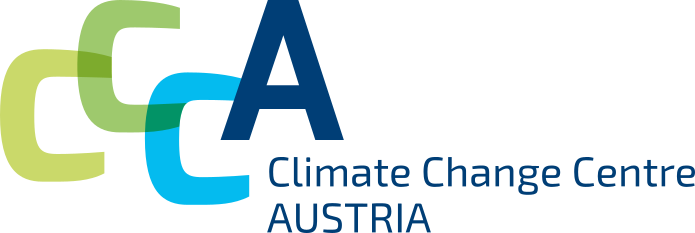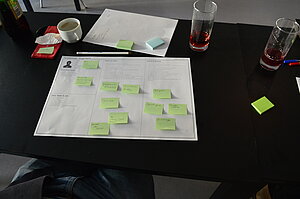Creative ideas generated in the research context were the basis for an intensive two-day workshop in Salzburg on 3 and 4 November 2015. Eleven participants from seven CCCA member institutions convened to work with start-up expert Harald Jenull (unternehmerTUM, Technical University of Munich) to work on translating scientific ideas into practical applications.
Among the practices presented at the workshop were recently discovered methods in the area biology, innovative remote sensing methods, and new services for the research community. Some participants were also able to arouse great interest with the presentation of their very first prototypes! (Due to a confidentiality statement, nothing further may be disclosed at this point.) And explanations pertaining to the ideal time for filing a patent application were met with particular interest.
The main thematical concern during the two days was profiling customers for the respective products. Whom does the product address? Who are the relevant decision makers? How does one properly approach them and what will be convincing arguments? Such considerations can be helpful in optimising project proposals and thus provide added value – also for scientific work.
Testimonials:
“The CCCA Workshop ‘From Science to Business – Identifying Markets for Research and Scientific Ideas” was gainful on all accounts: Harald Jenull, Head of Technology Transfer at UnternehmerTUM – Center for Innovation and Business Creation at TUM, is an excellent speaker. Through inspiring kick-off talks and in interactive workshop settings, he conveyed easy-to-use methods for commercialising research results. I am convinced that by consistently applying these methods we can avoid making pointless efforts and use available resources more effectively. I have gained many new incentives and made new contacts within the ‘Climate Community’. Thank you very much Matthias Themessl and Stefan Ropac from the CCCA for organising this great event!" Natalie Glass (UBA)
“The two-day workshop not only provided exciting specialist input but also allowed time for practical work in small interdisciplinary teams. Due to the holistic approach to developing business models, the issue of sustainability was also well integrated. The presentation by UnternehmerTUM Munich – a centre for business creation offering a comprehensive service range covering the spectrum from business idea to venture capital – was particularly inspiring. A good practice example for the University of Natural Resources and Life Sciences!” Michael Ambros (Center for Global Change and Sustainability, BOKU)

